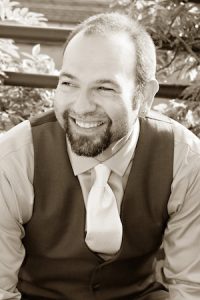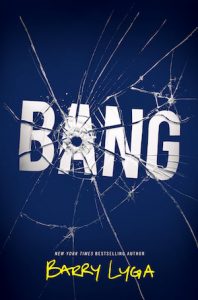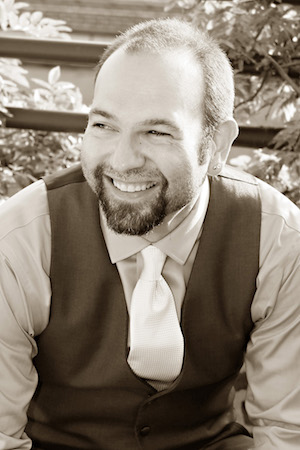We met Barry Lyga when we were waiting to sign books at the (thoroughly awesome) New England SCBWI conference. Turns out we are all Jersey-crowd–the Garden State representing! We had a funny chat, and then we checked out his books. This guy is a powerful writer. His new book, Bang, is out, so we picked his brain about books and publishing and whatnot.
Read this interview on the HuffPost.

Barry Lyga
The Book Doctors: Who were your favorite authors, and what were some of your favorite books when you are a kid?
Barry Lyga: I had such eclectic tastes as a kid! I loved old classics like Poe and Milton, but I was also obsessed with modern sci-fi authors like Joe Haldeman, as well as comic books by the truckload. Paul Levitz and Alan Moore were two of my favorite comic book writers. I read Haldeman’s Dealing in Futures short story collection over and over as a kid — those stories really opened my mind as to what was possible in storytelling. Oh, and I can’t forget to mention Ken Grimwood’s classic Replay. That book blew my mind. I re-read it every year, and it still knocks me down every time.
TBD: How did you learn to become a writer?
BL: I sort of figured it out on my own, really. I knew at a very young age that I wanted to tell stories, and I was manic in my reading. I read constantly. Every chance I had, I would have my nose in a book. So I sort of absorbed a lot of the lessons and the rhythms of writing and internalized them subconsciously. Which isn’t to say that I was a great writer the first time my fingers touched the keyboard! Hell, no! I still had to practice and hone my craft, which took literally decades. But no one ever really sat me down and taught me how to start — I figured that out on my own and then just kept iterating and trying until things started to click.
TBD: How did you find your first agent, and what was your road to publication?
BL: I met Kathy Anderson at a writers conference in early 2005. I had won the Editor’s Choice award at the conference, so she was looking for me. And I had seen one of her lectures the day before I won the award, so I was looking for her. And then it turned out I was scheduled for a pitch session with her! So, it was a fortuitous meeting.
She read the manuscript I had at the time, which was my first YA novel: The Astonishing Adventures of Fanboy & Goth Girl. After a couple of weeks, she offered me representation and I accepted. Then we talked about the book a little; she had some suggestions and I took ‘em. About five months later, she sold that book and my next one at auction. We haven’t looked back since!
TBD: Do you ever get pushback for writing books for teenagers that are so full of darkness?
BL: Not from anyone in the business. Occasionally there are people out there in the wider world who take issue with something I’ve written, but they are — thankfully — a minority. I think most people recognize that my books aren’t promoting the darkness or proselytizing for it; they just reflect it for the reader.
TBD: What did you learn about writing while working in the comic book business?
BL: I worked in comics on the distribution side, not the creative side. So honestly, the most important lesson I learned was that I wanted to be on the creative side!
But there WAS writing involved in that old job; it just wasn’t creative. It was a lot of marketing copy and so on. I did learn a substantial work ethic from that. I learned how to edit myself. I learned how to heed the sanctity of a deadline, which has stood me in good stead — in 12 years as a professional author, I think I’ve missed exactly one deadline. Thanks, comics!
TBD: Tell us about BANG.
BL: BANG is the story of Sebastian. Ten years ago, when he was four years old, Sebastian was playing with his father’s loaded handgun. It went off. And killed Sebastian’s four-month-old baby sister.
Now, ten years later, he’s still living with the guilt, the horror, the shame, and he’s decided he doesn’t deserve to live. How can you find forgiveness for something so unforgivable? How can you atone for a mistake you made before you even knew what a mistake was?
And there’s pizza. Believe me — the pizza is important. It’s a pretty dark book, so the pizza matters.

Little Brown Books For Young Readers
TBD: What are you working on next?
BL: I wish I could tell you! I have two projects in the hopper right now, but contracts have yet to be signed, so I’m not supposed to say anything about them. They’re both dream projects, for completely different reasons, and I’m so, so incredibly excited about them. Stay tuned!
TBD: What do you love most about being a professional author? What do you hate most about it?
BL: I love the freedom. I don’t mean the freedom of dictating my own hours and days (which is amazing; don’t get me wrong!), but rather the freedom of knowing that I am the one deciding what I do next. No one comes to me and says, “OK, your next book is about a kid who can talk to chickens…but he has a poultry allergy! Make it so!” I have the freedom to decide what stories I will tell. Some of them succeed; some of them don’t. But they’re all mine.
As to what I hate… I really hate the uncertainty. Which, of course, is the flip side of the freedom! There’s no way to know which, if any, of the stories I decide to tell will strike a chord with the reading public. If you made a graph of the sales of my books, it would look like a cardiac patient’s EKG. It’s all over the place. There’s nothing you can do about it, of course, but that doesn’t stop me from hating it!
TBD: You’ve written some pretty grim books on some really difficult topics. How does that affect you personally?
BL: Until recently, it didn’t! I mean, I wrote a book about child abuse (Boy Toy) and a whole series about serial killers (I Hunt Killers) and it never bothered me. I slept the sleep of the just every night, no matter what horrors I’d conjured during the day.
But BANG was different. Maybe because I was a new father. I was writing about a dead four-month-old baby while my own four-month-old baby was sleeping in a bassinet next to me. This book really, really got its hooks into me, and while that bothers me, I hope it will get its hooks into readers, too.
TBD: We hate to ask you this, but what advice do you have for writers?
BL: I always tell writers: It’s OK to suck. It’s OK to look at something you’ve written and not like it. That just means that you’ve grown as a writer, developed better taste and better instincts, in the interim. So, take that new perspective and write something new. Inevitably, you’ll look back on that in a little while and think that it sucks, too! But that’s all right. That’s progress. One of these days, you’ll write something that only half-sucks, and then you’re on your way!
Called a “YA rebel-author” by Kirkus Reviews, Barry Lyga has published seventeen novels in various genres in his eleven-year career, including the New York Times bestselling I Hunt Killers. His books have been or are slated to be published in more than a dozen different languages in North America, Australia, Europe, and Asia. Lyga lives and podcasts near New York City with his wife, Morgan Baden, their nigh-omnipotent daughter, and their preternaturally chill son. His comic book collection is a lot smaller than it used to be, but is still way too big.
Arielle Eckstut and David Henry Sterry are co-founders of The Book Doctors, a company that has helped countless authors get their books published. They are co-authors of The Essential Guide to Getting Your Book Published: How To Write It, Sell It, and Market It… Successfully (Workman, 2015). They are also book editors, and between them they have authored 25 books, and appeared on National Public Radio, the London Times, and the front cover of the Sunday New York Times Book Review.

